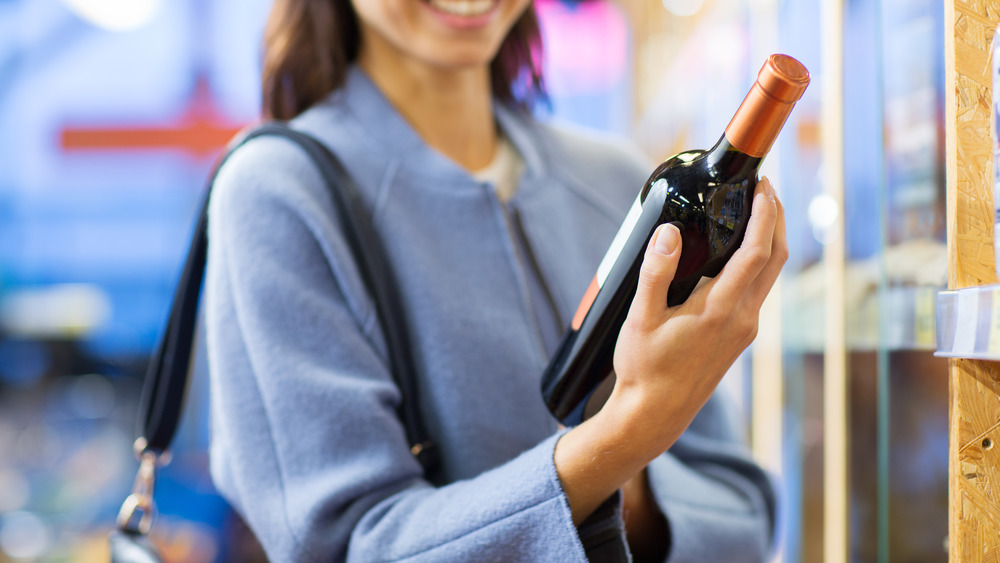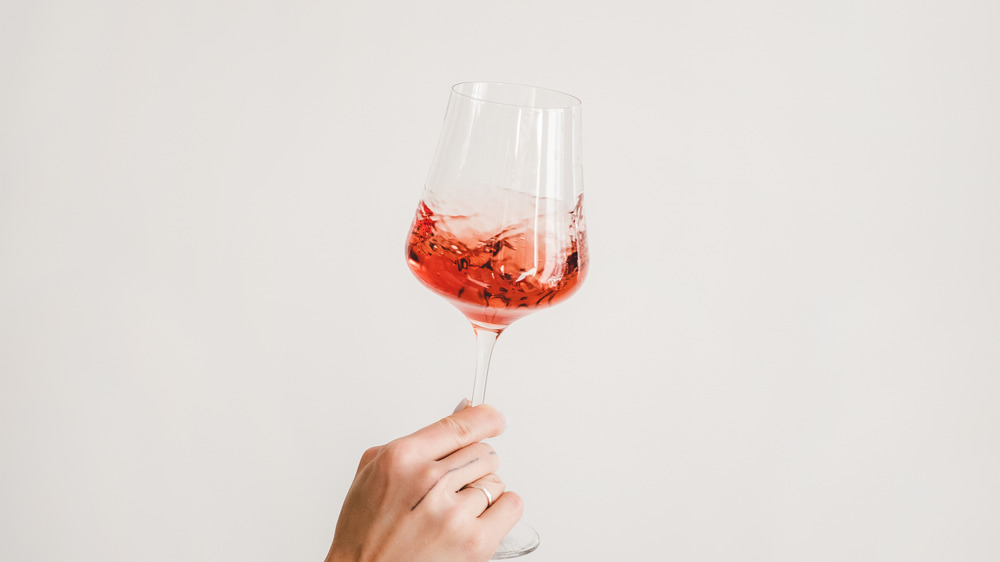The Reason Non-Alcoholic Wine Is Surging In Popularity
Towards the end of October, SevenFiftyDaily ended speculation that the ongoing lockdowns would diminish the growing interest in non-alcoholic wines and beers. During the pandemic, they noted, non-alcoholic beverage purchasing actually increased by 38 percent, while off-premise sales of alcohol only increased by 20 percent.
Talking to John Wiseman, the founder of a non-alcoholic cocktail line called Curious Elixirs, SevenFiftyDaily reported that the major draw in the direction of alcohol-free spirits is health and wellness. "There are," Wiseman says based off of reviews for his products, "more and more people who are like, 'I just decided during quarantine that I'm not going to drink anything because I want to keep my immunity strong.'"
A similar reasoning is evinced in The New York Times coverage of the growing preference for non-alcoholic wines. Victor O. Schwartz, of the importer VOS Selections, lists activities people engage in, from exercise to work to partying, before explaining, "All of these people enjoy drinking wine and don't want to give that up, but are happy not to have alcohol interfere at these times with their busy and active lives."
The overriding feeling behind the alcohol-free wine trend, then, is one of wanting to have all the fun and taste associated with alcoholic drinks without the hangovers, health effects, or the impaired state associated with drinking. However, whether the trend will serve as a complementary niche to alcoholic drinks or develop into a competitive culture remains unclear as this new market is still growing.
Non-alcoholic wine substitutes but does not replace the real thing
While exploring the options of non-alcoholic wines, Wine Folly described the two main methods of producing non-alcoholic wine. The first, reverse osmosis, filters out the aromatic compounds of the wine before removing the alcohol by distillation. Then, the aromatics are returned to retain a wine-like feel. The second, vacuum distillation, evaporates the wine. However, as Wine Folly notes, this causes the aroma and other pleasurable aspects of wine to dissipate.
In Wine Folly's opinion, neither of these two methods produce an adequate substitute for the real thing, as the removal of alcohol changes the chemical experience of wine drinking. Johannes Leitz, founder of Leitz winery, admits as much to The New York Times: "You can't compare it with wine." However, as he continues, that is not the point of non-alcoholic wine: "It's different, and you might be a little disappointed, but when you need a good beverage with really good food, mine comes closest to wine."
A further issue that may keep the market within its niche is the fact that the production of non-alcoholic booze is more expensive than alcohol, as Dylan Firth of the Brewers Association told Stuff. With the added process to a product already produced, costs heap upon themselves. For now, then, vintners can breathe easily on that front.

